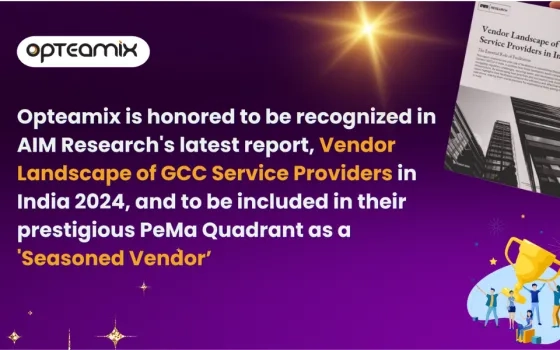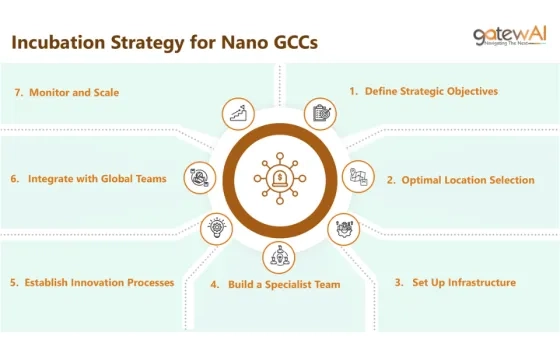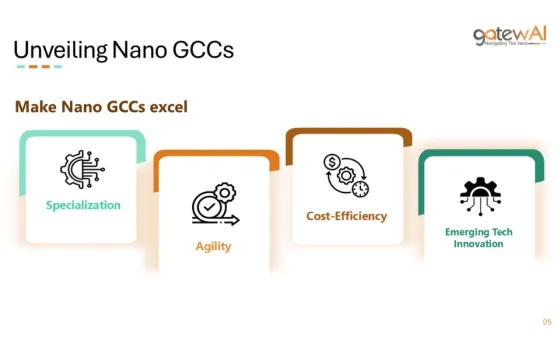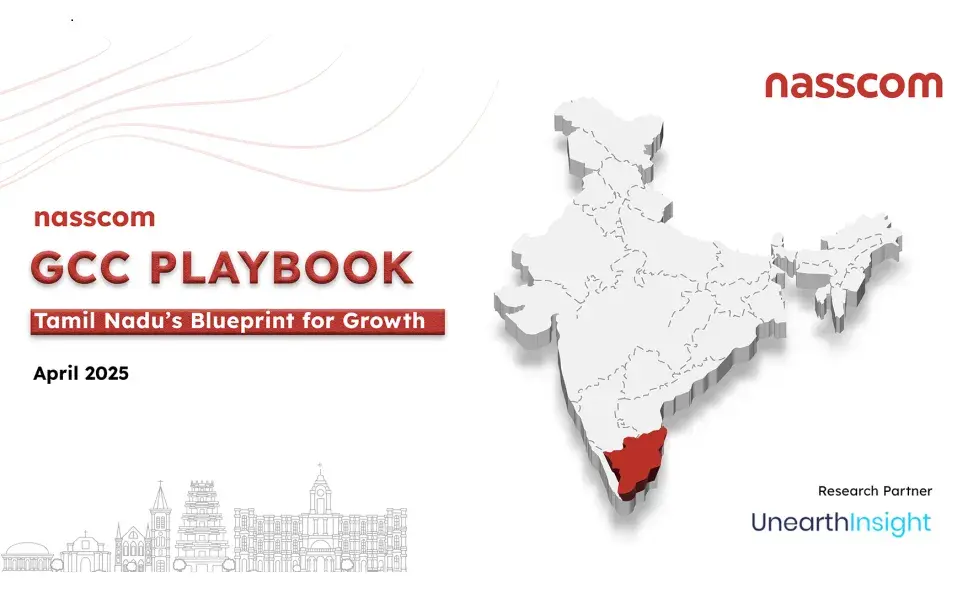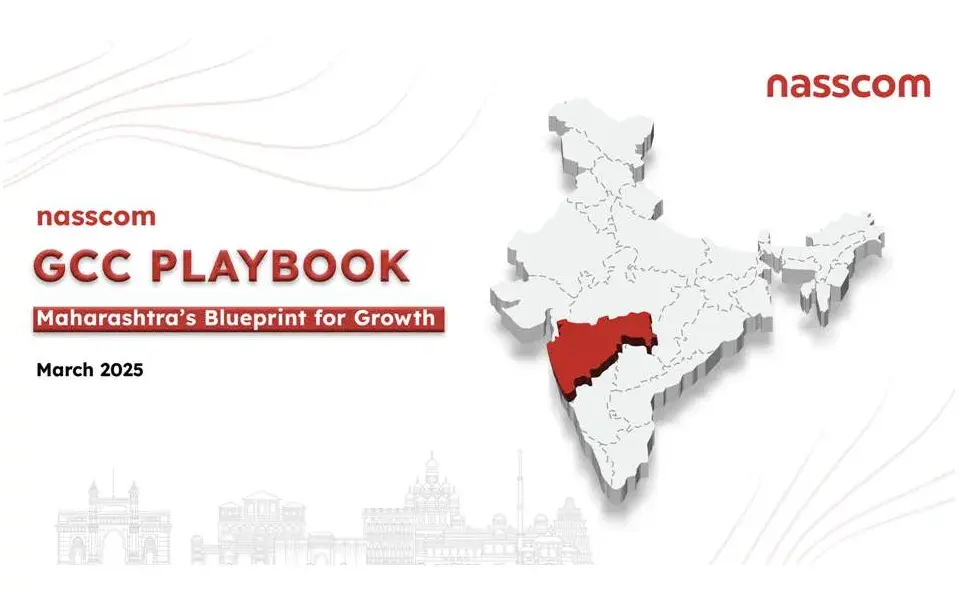Global Capability Centers (GCCs) for the insurance industry have become a strategic enabler for operational excellence, cost optimization, and innovation. Recent transformations in the insurance sector—including the digital revamp of an India-based GCC by a leading insurance company—highlight the growing importance of these centers. But why are GCCs gaining momentum, and what trends, impacts, and strategies are driving their adoption? Let’s dive into the evolving landscape of GCCs for insurance sector.
Global Capability Centers: Trends and Opportunities
GCCs, once considered mere offshore service centers, have evolved into hubs of strategic value creation. According to a NASSCOM report, the number of insurance-related GCCs in India has risen by 15% over the past three years. This trend underscores the growing reliance on GCCs to handle complex insurance processes such as claims management, underwriting, and fraud detection.
Key Trends in GCCs for insurance sector:
- Increased Automation: GCCs are adopting AI and machine learning to streamline claims and policy servicing.
- Digital Innovation: Centers now drive initiatives like predictive analytics for risk assessment and blockchain for transparent processes.
- Talent Diversification: India’s IT workforce, known for its expertise, continues to attract insurance firms establishing GCCs.
Opportunities for Insurance Companies:
- Cost-effective scaling of operations.
- Improved customer experience through digital channels.
- Access to cutting-edge technologies and innovations.
To address why insurance companies need Global Capability Centers (GCCs) and the challenges they help overcome, let’s delve deeper into the specific needs and solutions that GCCs provide:
Why Insurance Companies Need Global Capability Centers
The insurance industry is under constant pressure to adapt to changing customer expectations, technological advancements, and regulatory landscapes. Here’s why GCCs for insurance sector have become essential:
1. Driving Digital Transformation
- GCCs serve as innovation hubs, enabling the deployment of advanced technologies such as AI, blockchain, and predictive analytics.
- They facilitate the creation of digital-first platforms, improving customer engagement and operational efficiency.
2. Cost Optimization
- Setting up GCCs in cost-effective locations like India allows insurance firms to reduce operational expenses significantly.
- Savings can be redirected toward innovation and market expansion.
3. Enhancing Customer Experience
- GCCs implement tools like chatbots and self-service portals, ensuring 24/7 support and faster query resolution.
- They improve claims processing speed, enhancing policyholder satisfaction.
4. Streamlining Processes
- By consolidating global operations into a single GCC, companies can eliminate redundancies and standardize workflows.
- GCCs enable real-time data sharing and analysis, making decision-making faster and more accurate.
5. Accessing Specialized Talent
- Locations like India offer a deep talent pool skilled in IT, data analytics, and financial services.
- GCCs for insurance sector provide access to expertise in emerging technologies, ensuring the workforce is future-ready.
Challenges That GCCs Help Overcome for Insurance Companies
1. Operational Inefficiencies
- Traditional insurance processes are often slow and manual. GCCs introduce automation and advanced analytics, significantly improving efficiency.
2. Rising Costs
- GCCs reduce overhead by leveraging lower-cost geographies and automating routine tasks, allowing insurers to maintain competitive pricing.
3. Technological Lag
- Many insurers struggle with legacy systems that limit their ability to innovate. GCCs enable the adoption of modern technologies to drive digital transformation.
4. Data and Cybersecurity Concerns
- The insurance industry handles vast amounts of sensitive customer data. GCCs implement robust security frameworks to ensure compliance with global regulations and safeguard data integrity.
5. Regulatory Complexity
- Navigating diverse regulatory environments across countries is a major challenge. GCCs for insurance sector centralize compliance efforts, ensuring adherence to local and international standards.
6. Talent Shortages
- With rapidly evolving technological demands, many insurers face a skills gap. GCCs focus on hiring and training specialized talent to bridge this gap.
7. Scalability Issues
- Expanding operations quickly in response to market demands is difficult without a structured approach. GCCs provide scalable frameworks for growth, ensuring agility and responsiveness.
The Impact of GCCs on the Insurance Sector
GCCs are more than operational hubs; they are catalysts for change in the insurance sector. Here’s how they’re making an impact:
1. Accelerating Digital Transformation:
- AI-driven GCCs enable insurers to automate repetitive tasks such as claims processing, reducing turnaround time.
- Predictive analytics helps insurers assess risks more accurately, leading to better pricing strategies.
2. Enhancing Customer Experience:
- GCCs for insurance sector drive the implementation of self-service platforms, improving accessibility and convenience for policyholders.
3. Strengthening Compliance and Security:
- With data regulations tightening globally, GCCs implement robust compliance frameworks and cybersecurity measures to protect sensitive information.
How Global Capability Centers Continuously Reinvent to Deliver Value
To stay relevant, GCCs must focus on reinvention through innovative practices and strategic alignment with corporate goals. Here’s how they do it:
1. Consolidation, Optimization, and Standardization:
Companies like Opteamix enable GCCs to streamline their operations, consolidate workflows, and standardize processes, resulting in higher efficiency.
2. Technology Adoption:
From adopting cloud solutions to integrating blockchain, GCCs leverage technology to transform core operations.
3. Talent Development:
Investing in workforce upskilling ensures that GCC employees are equipped to handle emerging challenges and deliver value.
GCC for Insurance: Strategy, Operations, and Talent
Creating a successful GCC requires a clear strategy, optimized operations, and a focus on talent. Let’s break it down:
1. Crafting a GCC Strategy:
- Align GCC goals with the parent company’s long-term objectives.
- Focus on areas that offer maximum impact, such as digital innovation and customer engagement.
2. Optimizing GCC Operations:
- Use automation to reduce manual intervention in routine tasks.
- Leverage analytics for performance tracking and decision-making.
3. Building a Future-Ready Workforce:
- Provide employees with continuous training in areas like data science and cybersecurity.
- Encourage cross-functional collaboration to drive innovation.
How Insurance Companies Have Improved Their GCC Performance
Successful insurance GCCs focus on performance enhancement through structured approaches. For example:
Opteamix’s Role:
Opteamix has helped multiple organizations adopt best practices such as:
- Consolidation: Bringing scattered operations under one roof.
- Optimization: Streamlining workflows to minimize redundancies.
- Standardization: Ensuring uniformity across processes to improve quality.
- Transformation: Leveraging AI and analytics to redefine operations.
Metrics of Success:
- Reduced claims processing time by 20-30%.
- Increased operational efficiency by adopting automation.
- Enhanced customer satisfaction through better service delivery.
Conclusion: Reinventing the Insurance Industry with GCCs
Global Capability Centers for the insurance industry are no longer just cost-saving hubs; they are engines of innovation and growth. From accelerating digital transformation to enhancing customer experience, GCCs are integral to the industry’s evolution. As more insurance firms invest in GCCs, the focus will be on reinvention through technology, talent, and strategy.
Companies like Opteamix and others have shown how structured approaches can deliver long-term value. The question remains: Is your organization ready to harness the full potential of GCCs to transform your operations?
Recommended Resources:
- Read More: GCC Insights
- Opteamix Solutions – Learn how to optimize GCC operations.
- Digital India Initiative – Government policies supporting IT development.



